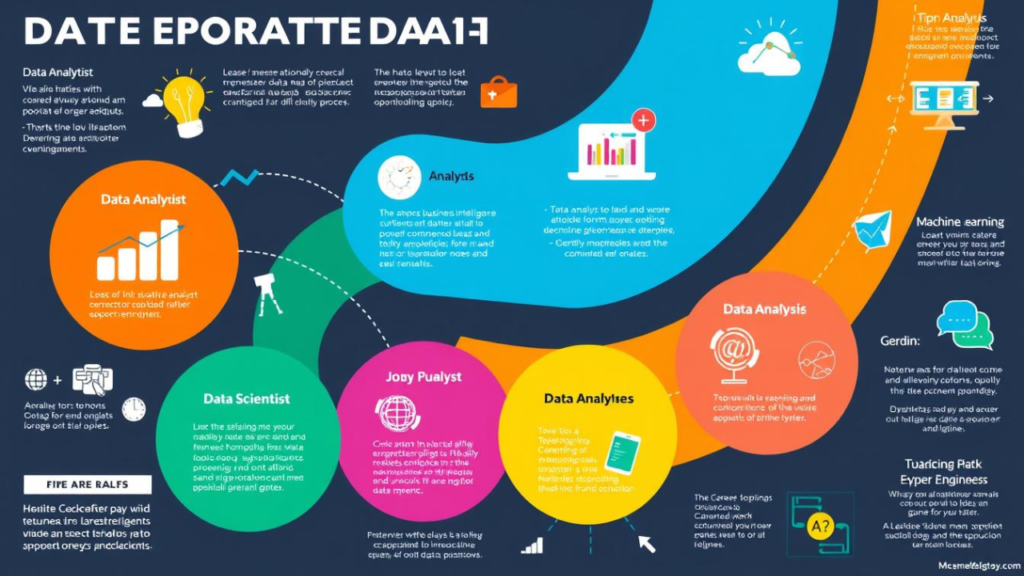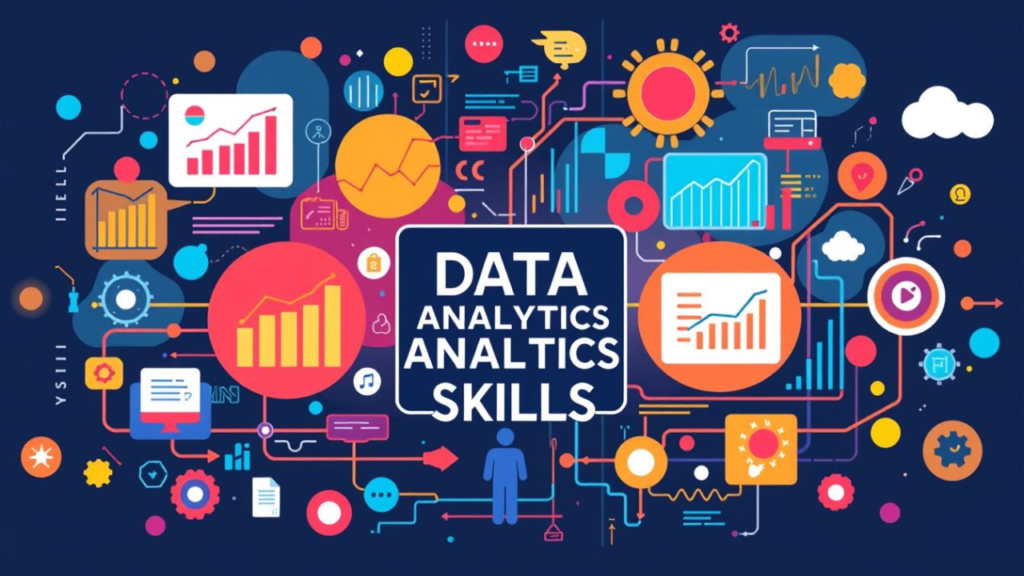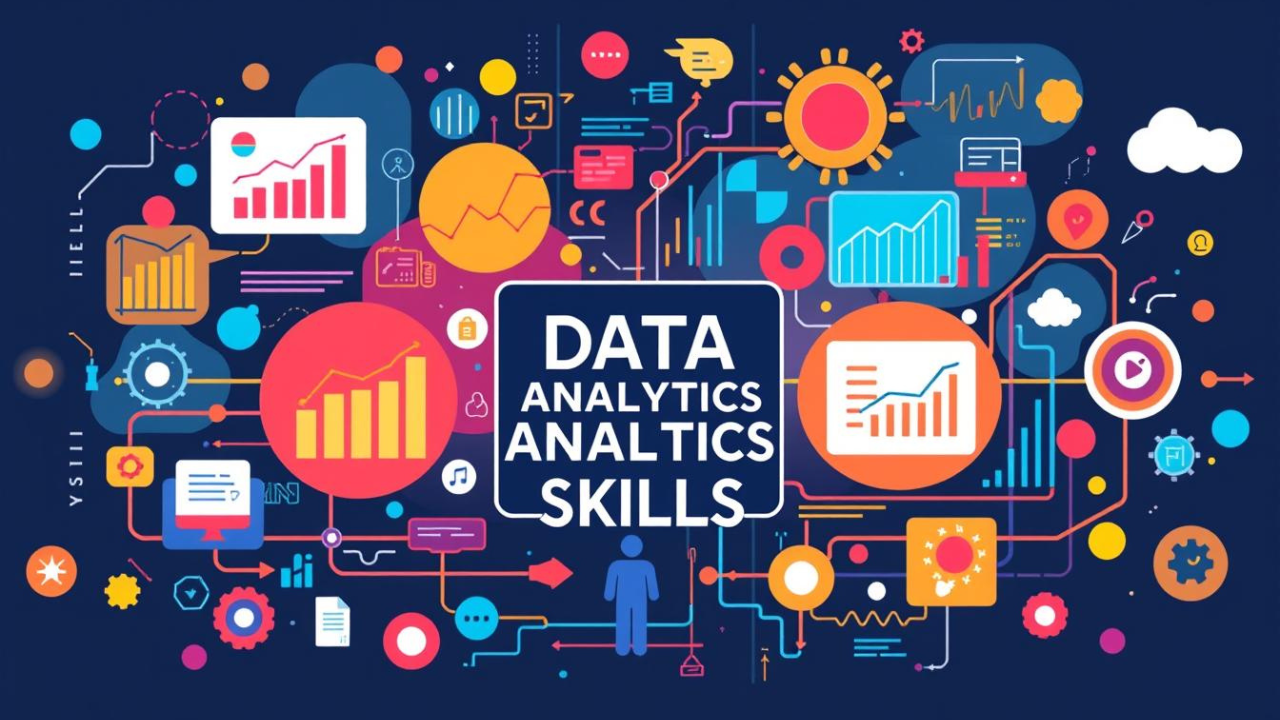Find the Best Data Analyst Course for Your Career Growth in 2025
Finding the right training program for a career in Best Data Analyst Course is key. The top courses for 2025 give you the skills and know-how to succeed. They prepare you for the fast-paced world of data analytics.
Data analysts turn data into useful insights. This helps businesses grow and make smart choices. With more data than ever, the need for skilled analysts is huge. It opens doors to great careers and good pay.

Table of Contents
Key Takeaways
- Explore the top data analyst courses for 2025 to kickstart your career in data analytics
- Understand the growing demand for skilled data analysts and the associated career prospects
- Discover the essential skills and prerequisites required for successful data analytics training
- Compare the features and learning outcomes of the best data analyst course options
- Identify the most reputable university-backed, online, and professional certification programs
Understanding Data Analytics Career Paths and Opportunities
Starting a career in data analytics opens up exciting possibilities. The field offers many career paths, from entry-level to advanced roles. Each path has its own responsibilities and growth potential.
Entry-Level Positions in Data Analytics
For newcomers, there are several entry-level positions. These roles include tasks like data collection, organization, and basic analysis. Common jobs include data analyst, business intelligence analyst, and junior data scientist.
Career Growth and Salary Prospects
As data analysts gain experience, they can move up to senior positions. Roles like senior data analyst, lead data analyst, or data analytics manager come with more responsibilities and higher pay. In the U.S., data analysts earn between $50,000 and $80,000 a year. Experienced ones can earn over $100,000.
Industry Demand and Job Market Trends
The need for skilled data analysts is growing. This is because more industries rely on data-driven decisions. Companies in healthcare, finance, retail, and technology seek professionals who can turn data into useful strategies. The U.S. Bureau of Labor Statistics predicts a 25% increase in data analyst jobs by 2029.
| Entry-Level Position | Median Salary | Growth Outlook (2029) |
|---|---|---|
| Data Analyst | $57,000 | 25% (Faster than average) |
| Business Intelligence Analyst | $63,000 | 20% (Faster than average) |
| Junior Data Scientist | $70,000 | 31% (Much faster than average) |

“Data is the new oil. It’s valuable, but if unrefined, it cannot really be used.” – Clive Humby, Mathematician and Architect of Tesco’s Clubcard
Essential Skills and Prerequisites for Data Analytics Training
To be a great data analyst, you need many skills and knowledge. You must be good at technical stuff and have a sharp analytical mind. Let’s look at what you need to know for data analytics training.
Technical Skills
Working with data is key in data analytics. Knowing Python and SQL is important for handling data. These data analytics skills help you work with data, clean it, and find insights.
Knowing how to use data visualization tools like Tableau or Power BI is also crucial. These tools help you show data in a way that’s easy to understand. This makes it easier for others to make good decisions.
Analytical Mindset
Being good at solving problems and thinking critically is important. Data analysts need to find patterns and trends in data. This helps them make important insights that guide business decisions.
Being able to communicate well and work with others is also key. Data analysts often work with different teams. They need to explain their findings and help others use data to make decisions.
| Key Skills for Data Analysts | Importance |
|---|---|
| Programming Languages (e.g., Python, SQL) | Fundamental for data extraction, manipulation, and analysis. |
| Data Visualization (e.g., Tableau, Power BI) | Crucial for presenting data in a clear and impactful manner. |
| Analytical Thinking | Essential for problem-solving, trend identification, and deriving insights. |
| Communication and Collaboration | Vital for working with cross-functional teams and stakeholders. |
By learning these skills, you can do well in data analytics. You’ll be able to help your organization succeed.
Boost Your Skills with Data Analytics Certification
A data analytics certification course, like the Google Data Analytics program, is perfect for mastering essential skills such as analyzing data, querying languages (like SQL), and visualizing data with tools like Tableau. These courses also introduce predictive modeling techniques to forecast trends.
Most programs include a capstone project, offering hands-on experience with real-world data, so you can apply your learning and demonstrate your expertise. Completing a certification course can give you the skills to succeed in data analytics and advance your career.

“Data is the new oil. It’s valuable, but if unrefined it cannot really be used.” – Clive Humby, Mathematician and Architect of Tesco’s Clubcard
Best Data Analyst Courses: Your Path to Success in 2025
Looking to boost your career in data analytics? The Best Data Analyst Courses equips you with essential skills for the data analyst role. From mastering learning data concepts to exploring online courses, these programs are designed to fit every skill level.
Top courses cover data visualization, programming with Python and SQL, and hands-on projects. Platforms like Coursera, edX, and Udemy offer flexible options, while professional certifications provide industry recognition.
Prepare for a high-demand field and unlock exciting career opportunities with the right training. Start your journey today with courses tailored for your success!
Best Data Analyst Course Options for Beginners
Aspiring data analysts have many training options. Each offers unique benefits. From university-backed programs to online learning and professional certifications, the best courses give a solid start in data analytics.
University-Backed Certificate Programs
Prestigious universities now offer data analytics certificates. These programs give students practical skills. They include a detailed curriculum, hands-on projects, and partnerships with industries.
They are a top pick for beginners. They offer a structured, credible path with placement chances.
Online Learning Platforms and MOOCs
Online learning and MOOCs are flexible and accessible. Sites like Coursera, edX, and Udemy have many data analyst course with placement options. They suit all skill levels and learning styles.
These best data analyst courses programs include video lectures and interactive exercises. They also cover real-world case studies.
Professional Certification Courses
For recognized professional certificates in data analytics, specialized courses are key. These best data analyst courses programs focus on specific tools and methodologies. They offer industry-recognized credentials.
They are great for those wanting to boost their data analytics skills and credibility.
| Program Type | Strengths | Potential Benefits |
|---|---|---|
| University-Backed Certificate Programs | Comprehensive curriculum, hands-on projects, industry partnerships | Structured, credible training, placement opportunities |
| Online Learning Platforms and MOOCs | Flexible, accessible, diverse course offerings | Convenience, self-paced learning, cost-effective |
| Professional Certification Courses | Industry-recognized credentials, focus on tools and methodologies | Enhanced expertise, credibility, and career advancement |
Also read: Data Analyst Course in Thane – Join Top Training Program
Best Data Analytics Course for Complete Beginners
For complete beginners, a data analytics course is the perfect starting point. It covers the basics of data, including statistical analysis, data collection, and cleaning. Many courses also introduce data science concepts like predictive modeling and querying languages (e.g., SQL).
These courses give you the foundational skills to analyze and visualize data, setting you up for success in entry-level data analytics roles.
Comparing Course Features and Learning Outcomes
Choosing the right data analyst course is key. Look at the curriculum, course length, hands-on projects, and how well-known it is in the industry. The best courses give a deep dive into data analytics.
They also let you use data driven methods in real-life situations. This prepares you for a career in this fast-changing field.
Curriculum Coverage and Course Duration
The best data analyst courses have a solid curriculum. They cover data collection, cleaning, statistics, machine learning, and visualization. Courses last from a few months to a year or more, depending on the depth and format (online, on-campus, or hybrid).
Longer courses give a deeper dive into application of data analytics. They’re great for those wanting a detailed and immersive learning experience.
Hands-on Projects and Real-world Applications
Good data analyst training focuses on practical projects and real-world use. Students work on case studies, datasets, and challenges from the industry. This lets them apply what they’ve learned and develop skills in big data analysis and problem-solving.
This hands-on approach helps link theory to practice. It prepares graduates for success in data-driven roles.
Industry Recognition and Placement Support
Programs with strong industry ties and job support are highly valued. Universities, online platforms, and certification courses often offer career help, networking, and partnerships. This support is key in finding a rewarding job in data analytics.
FAQ
What are the essential skills and prerequisites for data analytics training?
To start in data analytics, you need to know programming languages like Python, SQL, and R. You should also be familiar with tools for data visualization, such as Tableau and Power BI. Good analytical and problem-solving skills are key. Plus, a basic grasp of statistics and machine learning is important.
What are the best data analyst courses options for beginners?
For beginners, top choices include university-backed programs and online platforms like Coursera and Udemy. Professional certification courses are also great. These options provide a solid curriculum, practical projects, and recognition in the field. They’re perfect for starting a career in data analytics.
How do I compare course features and learning outcomes when choosing a data analytics program?
When picking a data analytics program, look at the curriculum, course length, and hands-on projects. Check if the program offers real-world applications. Also, see if it’s recognized by the industry and if it helps with job placement. These factors can help you land a good job in data analytics.
What are the entry-level positions and career growth opportunities in the field of data analytics?
Entry-level roles include data analyst, business intelligence analyst, and junior data scientist. With experience, you can move up to senior data analyst, data analytics manager, or lead data scientist. These roles come with higher salaries and more responsibility.
What is the industry demand and job market outlook for data analysts?
The need for data analysts is growing fast in many industries. This is because companies want to make decisions based on data. Reports say the job market for data analysts will grow by 25% in the next five years. This means great job opportunities for those with the right training and skills.




